2019 Scholarship and Seed Grant Awardees
After a very competitive adjudication process, we are happy to announce the 17 successful awardees for our 2019 IMN-Ontario scholarships and seed grants.
This year, we awarded nine graduate and health professional scholarships to Indigenous students pursuing research in applied community-based Indigenous health and well-being.
We introduced undergraduate scholarships and awarded five scholarships to Indigenous students enrolled in an undergraduate program. These awards are intended to support Indigenous students who are pursuing academic studies with the future goal of utilizing their degree within an applied Indigenous health community context.
Finally, we awarded three seed grants to new investigators who are undertaking research in the area of applied community-based Indigenous health and well-being.
Please read about our awardees below:
Scholarship Awardees
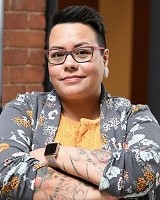 Keri Cheechoo
Keri Cheechoo Ottawa |
Keri Cheechoo is a Cree Iskwew from Long Lake #58 First Nation and is completing her PhD in Education at the University of Ottawa. Her research questions what Indigenous women’s stories reveal about public and customary practices, and policies of forced sterilization. Keri uses arts-based methodology in the form of poetic inquiry in ways that connect spiritually, emotionally, psychologically, and physically to her writing as an Indigenous educational researcher. |
 Erik Mandawe
Erik MandaweWestern |
Erik Mandawe (ᐱᔦᓯᐊᐧᐠ) is Bush Cree from the Beaver Lake Cree Nation in northern Alberta. He is currently a 3rd-year medical student at the Schulich School of Medicine & Dentistry at Western University. Prior to studying medicine, Erik studied medical anthropology at the University of Toronto (2010), and music at Western University (2017). He is an artist, musician, filmmaker, and storyteller. He is a sundancer in the Rattlechild Sundance Family, and lives his life as a helper to the people. His research interests are in land-based approaches to medicine, and upon graduating medical school, will practice as a land-based physician. In his spare time, Erik enjoys volleyball, rock climbing, and multi-day cycle touring. If you can’t get a hold of him, you can probably find him in a forest, or climbing a mountain somewhere. |
 Andrea Martel
Andrea MartelToronto |
Andrea Martel is a nēhiyaw iskwew from Waterhen Lake First Nation, SK and has familial ties to Onion Lake First Nation, SK. She has a BA in Sociology from the University of Saskatchewan and a MEd degree in Counselling Psychology from the University of British Columbia. Currently, she is a Project Manager at Maamwesying Health Centre where she is managing Indigenous health projects related to dementia care among First Nations communities. She will be starting her first year of a PhD program at the Dalla Lana School of Public Health at the University of Toronto. |
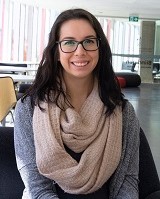 Shanna Peltier
Shanna PeltierToronto |
Shanna Peltier is a proud Anishinaabe kwe who grew up in Wiikwemkoong Unceded Territory located on the beautiful Mnidoo Mnis (Manitoulin Island), Ontario. Shanna is currently in the Masters in School and Clinical Child Psychology program, at the Ontario Institute for Studies in Education (OISE) - University of Toronto. Under the supervision of Dr. Jeffrey Ansloos, she hopes to explore and conceptualize a critical stance on Indigenous mental health in the areas of suicide prevention and life promotion, especially as it pertains to Indigenous children and youth. Her graduate level thesis work will consist of qualitative research with urban Indigenous youth leaders of mental health awareness and life promotion programming. Shanna is also the student representative for the Canadian Psychological Association (CPA) - Indigenous Peoples’ Psychology Section. She also holds various representative positions with the Centre for Addiction and Mental Health (CAMH), and the Ontario Indigenous Youth Partnership Project (OIYPP). In addition to her role as a graduate student, she is also the daughter of two wonderful and hardworking parents, Patrick and Ramona Peltier and a protective sister to Taylor Peltier. |
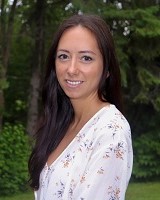 Staci Person
Staci PersonLakehead |
Staci Person is a 5th year doctoral student in the Clinical Psychology program at Lakehead University in Thunder Bay, Ontario. As a member of the Red Rock Indian Band, she strives to incorporate Indigenous values into both her clinical work and her research. Staci’s current clinical work includes supervised neuropsychological assessments of children and adolescents with suspected or known neurocognitive dysfunction related to prenatal alcohol exposure. She is involved in several research projects investigating the suicide of Inuit people, resilience in Indigenous post-secondary students, and diversity in leadership. Staci has always been passionate about research that aims to collaboratively combine knowledge with action to improve health outcomes and reduce health disparities among Indigenous communities like her own. Her career goals include conducting clinical work and program evaluation in a community hospital or agency with a focus on providing care to under-served Indigenous communities. Staci was recently matched to Horizon Health in Fredericton New Brunswick to complete her residency, which will bring her closer to achieving this goal and becoming a registered Clinical Psychologist. |
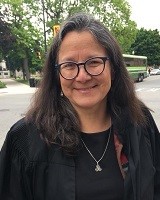 Jacqueline Powless
Jacqueline PowlessMcMaster |
Jacqui Powless is Mohawk, Wolf Clan, from Six Nations of the Grand River. In 2018, Jacqui completed her Bachelor Arts & Science, Public Health, from Wilfrid Laurier University. In September 2019, she will be beginning an MSc in Health Research Methodology at McMaster University. Jacqui’s research interests include Indigenous health research, health equity, social determinants of health, chronic disease prevention & diet. |
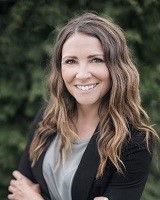 Randi Ray
Randi RayNipissing |
Randi Ray n’dizhinikaaz. Flying Post miinwa Red Rock miinwa, N’swakamok n’doonjibaa. Randi Ray, is Anishinaabe from Flying Post First Nation. Randi grew up in Red Rock, a remote community 100km east of Thunder Bay but currently calls Sudbury her home. Randi holds a diploma from Cambrian College and both an undergraduate and Master’s degree from Laurentian University. Using Indigenous framework and Indigenous methodologies, Randi’s PhD in Education from Nipissing University focuses on sustainable leadership development with First Nations Chiefs. The work is deeply rooted, as she grew up as the daughter of a First Nations Chief, gaining the perspective and passion required to not only serve one’s community but, at the same time, improve it - together. Randi has a strong commitment to working with systems leaders to interrupt colonialism in order to bridge the social and economic gaps across all sectors for Indigenous people. Randi has gained experience both educationally and professionally in education, health, business and industry sectors as a business owner, provincial lead, lobbyist, advocate, strategist, researcher and learner. Randi’s has always been passionate about improving the relationships between Indigenous and non-Indigenous people Canada in promote minobiimadziwin. Most importantly, she is grounded by her family who inspires her each and every day. |
 Justice Seidel
Justice SeidelLaurentian |
Justice Seidel is ililiwiskwew from the Moose Cree First Nation. She is currently a Master’s student in the School of Indigenous Relations at Laurentian University under the supervision of Dr. Jennifer Walker. Justice’s thesis focuses on First Nations health, specifically on patient experiences as a result of patients from her community having to travel to urban areas for medical care. Through her lived experience in the remote First Nation of Moose Cree in Moose Factory, Ontario, Justice understands the medical system that First Nation peoples in rural and remote parts of Ontario experience. Through Justice’s experience as an Intern at the Maamwizing Indigenous Research Institute at Laurentian University, Justice is implementing a community-based research approach to her own research project. |
 Sara Smith
Sara SmithMcMaster |
I am Sara Smith, Cayuga Bear Clan. I grew up in my First Nations community, Six Nations. Currently, I live in Brantford with my two boys (6) and (3) and my husband. My interest for public health began when I completed a diploma program in Fitness & Health Promotion at Humber College. I returned to Six Nations to deliver exercise classes to a number of sub populations within the community including our senior populations and individuals living with osteoarthritis. Through this work I had a desire to learn more about population health. I returned to school to complete my undergrad in Public Health at Wilfrid Laurier University. I am now working as a Special Projects Officer at Six Nations Health Services where I support senior leadership in research, evaluation, and data analysis. Through my time at Health Services I have become more interested in epidemiology and the importance of presenting this data specific for the Indigenous group. I would like to contribute an Indigenous perspective to epidemiology and view that is not seen too much in this field. I will be beginning a Masters of Public Health program at McMaster to explore this area. I am very thankful to be a scholarship recipient of the IMNO and to be connected with this amazing organization. |
Undergraduate Awardees
 Sasha Doxtator
Sasha DoxtatorWestern |
Shekoli swakweku Tsitsyakaht niyukyats Othahyuni niwakitalot^ On^yota’a:ka niwakuhutsyot^. My name is Sasha Doxtator. My spirit name means “She has lots of flowers”, I’m wolf clan from the Oneida Nation. I am entering my 3rd year of my undergrad at Western University majoring in First Nation Studies. Before returning to University I was teaching Oneida language for the School Board in Windsor, On., as well as working as an Advocate for Indigenous children in CAS care. I was born and raised on Oneida. I am very fortunate to have both sets of Grandparents who spoke the language fluently. I was raised attending Longhouse ceremonies and grew up learning cultural teachings from my elders. I hope to use my cultural knowledge and my western education to work for the betterment of my community. For the past school year, I have been a research assistant to the Physics and Astronomy department. I have been researching Indigenous Astronomy. We are working towards creating an Indigenous Astronomy book that is filled with Haudenosaunee content. We have recently been approved to start an Indigenous Astronomy course through Western’s Science department. It will be the first of its kind in Canada. I plan to develop an Indigenous Astronomy presentation that I can share with my community, especially to our children and youth. |
 Heather Ellis
Heather EllisGuelph |
My name is Heather Ellis, and I am a non-status First Nations woman applying for status with the Qalipu Mi’kmaq band in Corner Brook Newfoundland. I am starting my second year of the Doctor of Veterinary Medicine program at the Ontario Veterinary College. In my personal time I’ve been spending time learning more about my heritage and traditional crafts like quill beadwork and moccasin making, as well as attending local powwows whenever I have the chance. Growing up my family was very poor, and I have never been able to get any financial support for my education; but by working hard to put myself through college I have become the first person in my family to get a Bachelor’s degree. This support from the Indigenous Mentorship Network means that I will be able to focus on completing my Doctorate and get back to helping our communities. I’m hoping to be able to provide veterinary services to Northern communities that do not have regular veterinary services; help keeping the pets healthy who in turn help keep us healthy. |
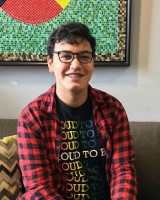 Riley Kennedy
Riley KennedyWestern |
Riley Kennedy is from the Niagara Region and a member of Oneida Nation of the Thames. He is attending Western University and is entering his second year of sociology and Indigenous studies. Riley has many roles within the university, including undergraduate student senator and cultural coordinator on the Indigenous Students' Association. He has been and continues to be involved in many research projects at Schulich School of Medicine and Dentistry. Riley hopes to one day enter the field of healthcare or social services. He has passions for health systems, health promotion, health equity and social inclusion, and LGBTQ+ studies. In the future, he plans to complete a masters degree with the possibility of completing a doctoral degree. |
 Katie Laronde
Katie LarondeNipissing |
Kwe Kwe! My name is Katie Laronde and I am member of Temagami First Nation and currently reside in North Bay where I study Physical Health and Education at Nipissing University. I work as a self-employed Registered Massage Therapist in two clinics in my hometown – Temagami Medical Centre in the town of Temagami and the Doreen Potts Health Centre which is located on Bear Island on beautiful Lake Temagami. I will be applying to physiotherapy school this fall and once I become licensed to practice I plan on returning home to provide both Massage Therapy and Physiotherapy healthcare services to the residents of Temagami and Bear Island. In my free time I enjoy biking, hiking, organizing a beach youth volleyball league, and volunteering at the local art camp and canoe festival. Chii-meegwetch to IMN for their support through the last year of my degree here at Nipissing University! |
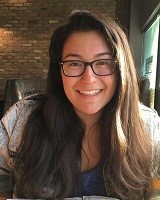 Josha Rafael
Josha RafaelMcMaster |
Josha Rafael (ôkimaw pisim) is a nêhiyaw iskwew. Her home community is Saddle Lake Cree nation, but she was raised on the traditional and unceded territories of the Musqueum, Squamish, and Tsleil-Waututh First Nations in Vancouver, BC. She is currently completing her Bachelors of Arts & Science degree at McMaster university. Josha is a mentor with the Indigenous Health Sciences Office, and has connected with Indigenous students in both elementary and high school that are interested in health careers. She has worked on multiple research projects that aim to improve the health and wellbeing of Indigenous peoples, including Dr. Dawn Martin-Hill’s “Co-Creation of Indigenous Water-Quality Tools” project, which assessed water quality and health in two Indigenous communities. As an undergraduate student who is passionate about Indigenous community-building and health promotion, Josha will be chairing the Indigenous Health Movement (IHM) McMaster Chapter in the upcoming year, as well as serving as an executive of the Cooperative of Indigenous Studies Students and Alumni. Above all, it is her deep love and sense of responsibility towards her family, her community, and future generations that fuels her future ambition of working in the field of Indigenous healthcare. |
Seed Grant Awardees
 Karen Lawford
Karen LawfordQueen's |
Dr. Karen Lawford is the grand-daughter of Dedibaayaanimanook Sarah Keesick Olsen. Namegosibiingonjii Dedibaayaanimanook. Gaaminitgwashkiigaanig gii‘ izhinitaawigi. Odeden, omishoomenzha‘gayeomishoomisan, Giizhiggaagiiizhinikaazonij,gakinagii‘ onjiiwaa‘ Namegosibiing. Gaye odaanikoobidaaganan, Jiiyaangaagii‘ izhinikaazonij, Namegosibiinggewiingii‘ onjiiwan. Apiimewinzhagakinaigiweniwaggii‘ izhidazhiikewag Namegosibiing. Wiingegii‘ onizhishinNamegosibmewinzha. Wiingeogii‘zaagitoonaawa o-Namegosibiimiwaa. Wewenigayeogii‘ ganawendaanaawaa. Dedibaayaanimanookomishoomisan, Giizhig,gii‘ ikidooniijaanisa‘ jidibendamowaaj Namegosib. Dr. Lawford is an Aboriginal midwife from Namegosibiing (Trout Lake, Lac Seul First Nation, Treaty 3) and a registered midwife (Ontario). She is an Assistant Professor in the Department of Gender Studies at Queen’s University. Her research focuses on the provision of maternity care for those who live on reserve and understanding the barriers to equitable reproductive health services. Dr. Lawford is also examines the leadership facilitators and barriers for Indigenous women and Two Spirit leaders in health care and the academic health sciences. |
 Diana Lewis
Diana LewisWestern |
Dr. Diana (Dee) Lewis is Mi’kmaq from the Sipekne’katik First Nation in Nova Scotia. Dee holds a Master of Resource and Environmental Management degree and a PhD (Sociology) from Dalhousie University. Her area of research focuses on environmental health using quantitative, qualitative, and Indigenous methodologies to explore and foster an understanding of the unique aspects of Indigenous health, specifically as it is impacted by resource or industrial development. Dee will leverage the support provided through the Ontario Indigenous Mentorship Network to build on her expertise in environmental impact assessment processes, particularly in health and risk assessment. Dee is a faculty member at Western University in the Department of Geography and the First Nation Studies Program. |
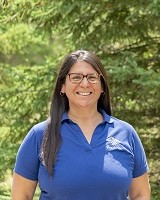 Lorrilee McGregor
Lorrilee McGregorNOSM |
Dr. Lorrilee McGregor is from Whitefish River First Nation near Manitoulin Island. She was recently appointed to the position of Assistant Professor at the Northern Ontario School of Medicine in Sudbury. Her research interests are in obesity, physical activity, and traditional knowledge. Dr. McGregor has been a member of the Manitoulin Anishinaabek Research Review Committee since 2002. This research project will explore obesity discourse among Anishinaabek knowledge keepers on Manitoulin Island through sequential focus groups. The intention is to understand obesity from a cultural perspective and to consider how to educate community members about healthy body weight through teachings. |


